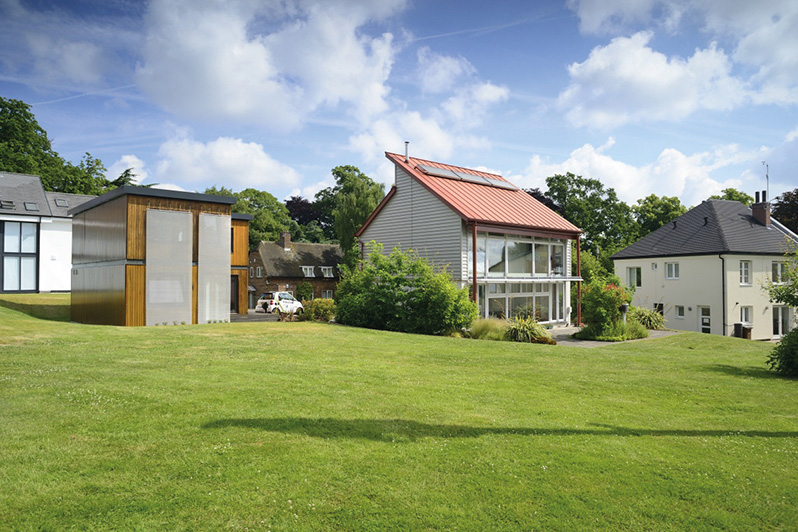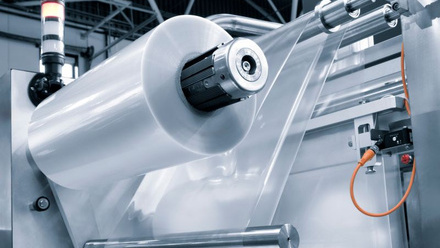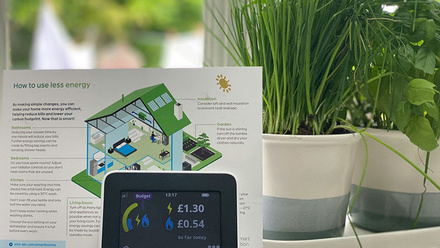Modular energy storage for the home
A new energy storage technology is being tested at the University of Nottingham, UK, Creative Energy Homes development.

The seven-house development provides a living test-site for new energy efficient technologies.
The trial is the latest step for the Advanced Distributed Storage for Grid Benefit (ADSorB) Project consortium, led by researchers from the University of Sheffield. The aim is to commercialise thermal energy storage (TES) technologies that have been developed at the University of Loughborough.
When renewable energy sources are plentiful, the devices are designed to store excess energy so it can be released and used during peak times or to make up for supply shortfalls.
A feasibility study has evaluated the potential of thermochemical storage (TCS) for the longer term, while phase change material (PCM) technologies are said to be more agile for the shorter term.
The combination of the two could significantly reduce carbon emissions, offer more flexibility and support the UK’s net-zero ambitions, proposes the consortium.
In this demonstration project, each TCS or PCM module has three separate storage cells that are reportedly configurable.
Dr Pawel Dominik Nycz at Loughborough University reports that the PCM modules can operate in parallel or in series and, depending on the flow rate, provide domestic hot water above 40°C.
He says the storage capacity is 4.55kWh, with the total storage capacity of around 13kWh when fully charged. The total self-discharge time from a fully charged system, to a temperature below the useful threshold for domestic hot water and assuming a room temperature of 20°C, is approximately 220 hours.
The plan for Stage 2 of the ADSorB project is to install multiple TCS systems, which have ~50kWh of energy. Dr Daniel Mahon at Loughborough comments that a three-module 150kWh system will occupy around 1m in volume.
The team at Sheffield leading the trial says that these technologies have been adapted to be modular so they can be slotted into homes as part of a retrofit or a new build.
Dr Rob Barthorpe, from Sheffield’s Department of Mechanical Engineering, makes the point that both TCS and PCM use reversible reactions with benefits over traditional thermal storage, such as hot water tanks.
He describes how the PCM devices melt and solidify an active material, creating a latent heat storage density several times higher than a comparable sensible heat process.
Barthorpe also notes that PCM storage is tailorable and can provide consistent heat delivery near the desired temperature during discharge. They have used a temperature of around 50°C due to its“suitability for domestic applications”.
TCS releases high-grade heat, Barthorpe points out, as it dries an active material with hot air when charging and rehydrates it with cooler, moist air when discharging. While it has higher storage density, he says it can also be stored indefinitely.
The modules also have independent charge and discharge mechanisms, with a controller for each cell. The controller interacts with a dwelling level control device, which integrates with the heating, hot water systems and the thermostat.
Initially, the TCS will be focused on space heating and the PCM technology on hot water, but both technologies will be eventually adapted for all heating demands. The PCM is deployed with an air-source heat pump, while the TCS is designed for any system, as it charges electrically.
'The modules are designed to be ‘plug-and-play’ in a domestic setting. They can be plumbed straight into a domestic system with the addition of a small number of valves to enable effective control of the heat services,' comments Barthorpe.
The intelligent control system being developed by the University of Sheffield and Mixergy will integrate the units. The planned lifespan of the modules is 25 years.







